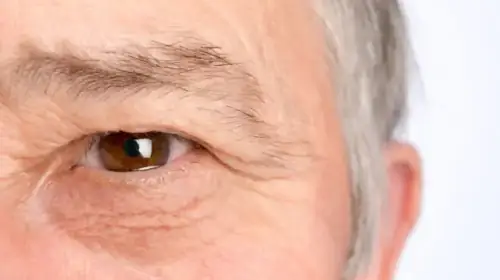

Cataract Surgery Cost in India starts from US $600 for one eye and varies depending on the type of IOL (IntraOcular Lens), type of technology, surgeon, facility and the city where you choose to get the cataract operation done.
An important expense when it comes to your cataract surgery is going to be your ophthalmologist's fees. IndiCure recommends highly experienced, skilled, board-certified surgeons who are capable of delivering successful surgeries. Although the charges may vary depending on the experience of the surgeon, you can be assured that you are in safe and skilled hands when you choose eye treatment in India with IndiCure.
There are different types and brands of IOLs available for your cataract surgery in India. These include Presbyopia-correcting IOLs (multifocal IOLs and accommodating IOLs.) and Toric IOLs to correct astigmatism. The cost of cataract surgery varies to a great extent on the type of IOL used. You can discuss the options with your surgeon who will help you make an informed decision.
A significant portion of the overall cost of the surgery arises from the use of any customized surgical instruments or specialized computer technology. With the hopes of improving patient care, new techniques and technologies are often introduced to the surgical process. Such innovative advancements in the surgical approach can increase costs.
Having your cataract surgery in an accredited surgical facility by skilled and qualified medical staff is a critical factor. Moreover, the geographical location of this facility in India also affects the quote. But, IndiCure provides you with a projected estimate that will be all inclusive and affordable.
The surgery-related expenses include the pre- and post-surgical expenses. The pre-surgical expenses are associated with the age and medical condition of the patient and thus the number and type of investigations required. Post-surgical expenses may include prescription medications and follow-up consultations.
We at IndiCure, understand that you travel with a budget in mind and do not like to be greeted by surprises after arrival in India. We thus club all these expenses and give you the package cost that is inclusive and affordable at the same time.
Your case manager shall give you an estimated cost of your surgery after discussing your medical reports with the surgeon. The final cost, however, shall be confirmed after your consultation with the surgeon.

We Help you Choose the Right Treatment, Surgeon & Hospital

We Arrange Video/Telephonic Consultation with the Surgeon

We Assist you with Visa & Accommodation

We Receive you at the Airport and Drop you at Hotel/Hospital

We Assist you the at Hospital & Provide Post Operative Support
In fact, we have Special Negotiated Rates with the Hospitals and you can avail Discounted Rates when you choose to Travel with IndiCure.
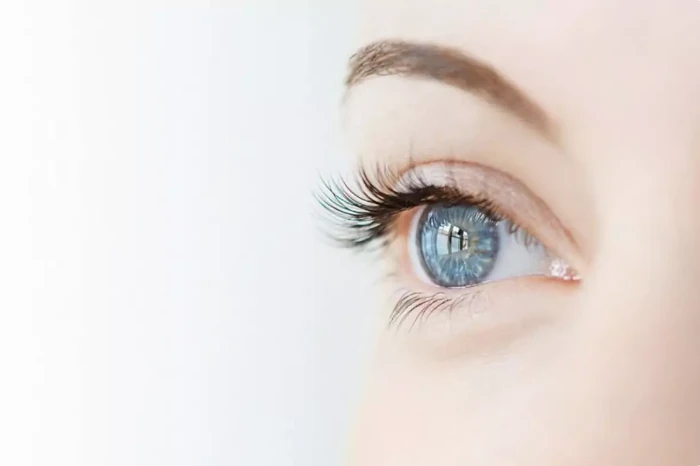
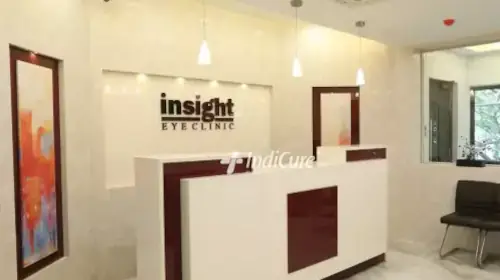
Mumbai
Insight Eye Clinic is a cutting-edge and one of Mumbai's leading eye care centres, delivering high-quality eye care. The facility is well equipped with eye care experts, specially trained staff, and the latest in eye care technology to ensure that the patients are treated with the utmost care and warmth.
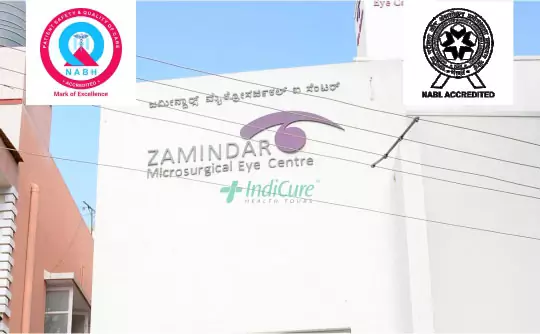
Bangalore
Zamindar's Microsurgical Eye Centre (ZMEC), which was founded in 1997, has been offering high-quality eye care to patients in and around Bangalore for the past 25 years. Their patients vouch for their services, and they are highly regarded for offering best-in-class eye treatment.
The aim of your lens is to help you see by bending (refracting) light rays that enter your eye. Your own lens should be clean, but it is clouded because of a cataract. It's like looking through a cloudy or dirty automobile windshield when you have a cataract. Things may appear fuzzy, indistinct, or less vibrant.
A cataract can only be removed by surgery. When a cataract prevents you from performing things you desire or need to accomplish, an ophthalmologist will prescribe cataract removal.
If you're over 40 and suffering the signs and symptoms of cataracts, speak with your eye doctor to see if you're a candidate for cataract surgery. He or she can tell if cataracts are the problem or if something else is interfering with your vision.
Your eye doctor can determine if cataract surgery is a possibility for you once you've been diagnosed and discussed your medical history.
Your eye will be numbed with eye drops or with an injection around the eye. Your surgeon looks through a special microscope.
The surgeon creates tiny incisions (cuts, created by blade or a laser ) near the edge of your cornea. The surgeon uses these incisions to reach the lens in your eye.
Using very small instruments, he or she will break up the lens with the cataract and remove it. Then the surgeon puts your new lens into place.
In most cases, your surgeon will not need to close the wounds with stitches. Over time, these "self-sealing" incisions will close on their own. While you recover after surgery, a shield will be placed over your eye to protect it.
It's common to have itching and slight discomfort following surgery for a few days. Rubbing or squeezing your eye is not a good idea.
On the day of operation, your doctor may ask you to wear an eye patch or a protective shield. During recovery, your doctor may also advise you to wear the eye patch for a few days following surgery and the protective shield while sleeping.
To prevent infection, reduce inflammation, and control eye pressure, your doctor may prescribe eye drops or other medications. These drugs are sometimes administered into the eye during surgery.
Full recovery could take anywhere from four to six weeks, depending on the nature and extent of your cataracts, as well as your physiology and ability to heal.
After the procedure, the results are gratifying. Within a few days after cataract surgery, your eyesight should improve. As your eye heals and adjusts, your vision may become fuzzy at first. Because you're viewing through a new, clear lens, colors may appear brighter following surgery.
We at IndiCure completely understand your concerns and it is always our endeavor to provide the best outcome for every patient. Following is the list of questions you must ask before you embark on your journey for Cataract Surgery in India.
Prepare to answer questions about your:
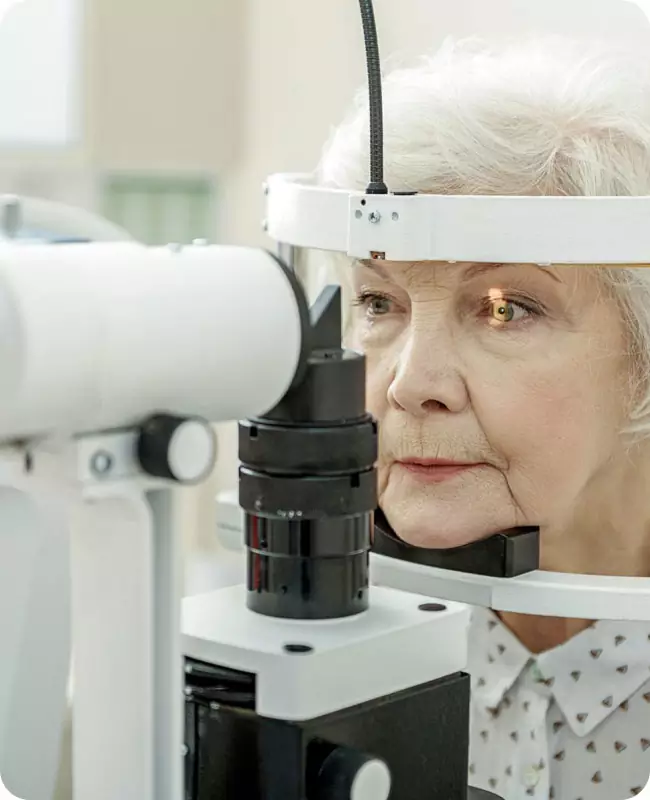
Cataract surgery is commonly recommended when a cataract prevents a person from performing daily tasks such as driving or reading.
Although no technique of preventing cataracts has been scientifically validated, there are steps you can take to reduce your risk of having one:
Cataract surgery generally takes around 30 minutes.
Even while some patients can see the results as soon as a few days after surgery, the operation will take around three months to fully heal. The procedure's recovery period is required to be as short as possible, but there are a number of issues that can cause the process to be delayed.
You will be required to stay in the recovery room for 30 min to an hour before being allowed to go.
Medicines will be given for a period of one to three months.
Avoid touching your eyes for the first 5-7 days after surgery, and if you have diabetes, keep it under control so that the procedure has long-term consequences.
After a seven-day recuperation, the individual can resume normal day-to-day activities.
You can watch television starting the day after your procedure.
After surgery, you will need to use eye drops and should follow your doctor's instructions, such as not putting washing water straight in your eyes. Avoid rubbing or pressing your eyes. Your eye should be completely recovered after 8 weeks. After cataract surgery, around 90% of people see a significant improvement in their vision. However, don't expect your vision to be flawless. It's possible that you'll still need to use glasses or contacts.
An eye infection, hemorrhage, retinal detachment, drooping eyelids, and a temporary rise in eye pressure are all very rare side effects following cataract surgery.
Fixed-focus monofocal lenses, accommodating monofocal lenses, and toric lenses are the most commonly used.
Yes, we do provide bladeless cataract surgery.
Cataracts are caused by changes in the tissue that makes up your eye's lens as a result of aging or injury. Cataracts can be exacerbated by inherited genetic abnormalities that cause other health issues. Other eye diseases, previous eye surgery, or other conditions such as diabetes can all induce cataracts.
An eye exam can detect the majority of cataracts. To look for abnormalities with the lens and other elements of the eye, your eye doctor will test your eyesight and examine your eyes with a slit lamp microscope.
A cataract is not contagious and cannot be passed from one person to another or from one eye to the other.
Cataract surgery has a success rate of more than 98 percent.
Cataract surgery is not painful, and most patients remain awake throughout the procedure. You will have little to no discomfort. Before the procedure, you will be given a light sedative to ease the nerves, as well as eye drops to numb the eyes.
Even though your intraocular lens has an unique UV coating, your doctor will advise you to wear UV-protection sunglasses for at least one year after cataract surgery.
Enhance your medical journey to India by availing these extra services.
Traveling abroad for medical reasons may be challenging. With our experience of over a decade and working with the best surgeons and top hospitals in India, we help make your medical tour easier and safer for you. We will guide you at every step of the way and make end-to-end arrangements for your surgery, travel, and stay.
Ramandeep Dhaliwal
I had great experience having rhinoplasty through Indicure. Dr. Ruchika from Indicure has helped me in finding best plastic surgeon, answering all my questions...
Read More
Joshua Archer
My name is Joshua Archer I'm from New Zealand, bay of plenty, kawerau I opted for the bypass surgery in January 2023 but planned it in advance for 28 September found IndiCure...
Read More
Kera Ren
Absolutely loved my experience with IndiCure - from first inquiring to meeting the surgeon pre op to my follow up post op. The surgeon was extremely approachable...
Read More
Andreana Paul
Had a wonderful experience. Visited India for my plastic surgery. From sending mails, airport pickup, comfortable accommodation and, to smooth hospital appointment booking...
Read More
Brandi Luce
I had the privilege of using Indicure's services for a cosmetic procedure that I had wanted for a long time but had always been apprehensive about. Ruchika helped me...
Read More
Jade M
Indicure Health Tours went above and beyond my expectations. They helped me with every aspect of my journey and were professional, kind and caring. I was...
Read More
The content on the website (www.indicure.com) is intended to be general information and is provided only as a service. All photographs on our website of before and after results are examples only, and do not constitute an implied or any other kind of certainty for the result of surgery.
Learn about IndiCure Health Tours' comprehensive editorial policy that strives to deliver trustworthy, helpful, relevant, accurate and people-first content on medical tourism in India.
It is not medical advice and should not be taken as medical advice. It should not be used to diagnose or treat a health condition and is in no way meant to be a substitute for professional medical care. You are advised to see a surgeon in person to assess what surgery may or may not accomplish for you.
It is also important to keep your expectations realistic and to understand that all surgical procedures carry risks and should never be taken lightly.